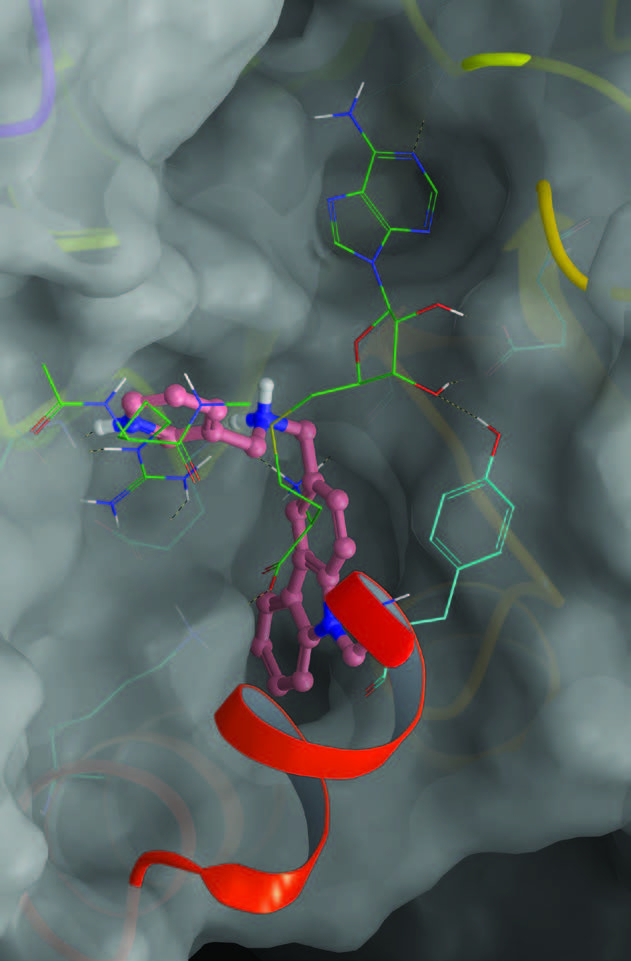above: Chenglong Li is creating complex molecular dynamics simulations involving the PRMT5 enzyme to help discover a drug that will allow the human body to suppress the invasive brain tumors.
Chenglong Li, Ph.D., an assistant professor in the College of Pharmacy at The Ohio State University, is using computational chemistry to help develop a genetically targeted drug that could surpass current approaches to treating a type of aggressive brain tumor called glioblastoma multiforme (GBM).
The survival outcome of patients diagnosed with a GBM is relatively poor and has improved only marginally over several decades. Combinations of surgery, radiation and chemotherapy remain the most common therapy, yet surgeons often can’t completely remove the tumors without causing serious damage, radiation is rarely effective and chemotherapy usually produces serious side effects.
“My group has been conducting molecular dynamics simulations of the PRMT5 enzyme to gain insights on its catalytic mechanisms,” said Li. “We then conduct virtual screenings of more than 100,000 pharmaceutical compounds to identify drugs that prevent that enzyme from blocking the body’s cancer suppression genes. This novel approach is called epigenetic cancer therapy, where molecular compounds ‘reawaken’ natural human tumor-fighting genes that stay dormant in many types of cancers.”
Kiran Mahasenan, a graduate student on Li’s research team, developed molecular models using the IBM Cluster 1350 system at the Ohio Supercomputer Center, which the team also used to screen drug candidates. Once the most promising drug candidates are identified, the data is passed along to Dr. Robert A. Baiocchi, an oncologist at The James Comprehensive Cancer Center, who conducts clinical tests to evaluate the effectiveness, toxicity and dosage of each drug.
--
Project lead: Chenglong Li, The Ohio State University
Research title: Pursuing drugs to ‘reawaken’ nature’s cancer-fighting genes
Funding source: National Institutes of Health, The Ohio State University College of Pharmacy
